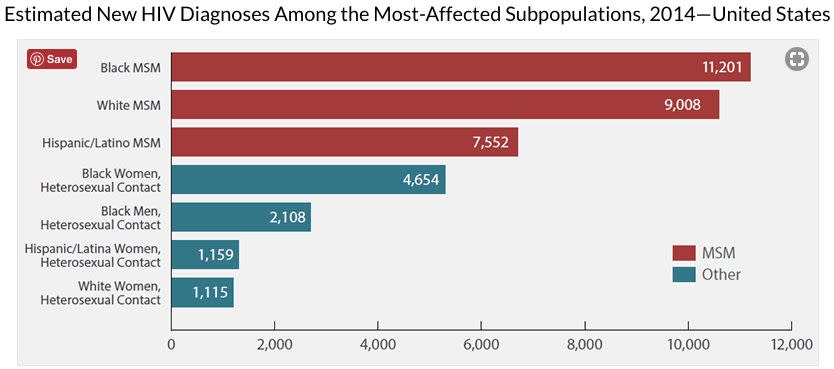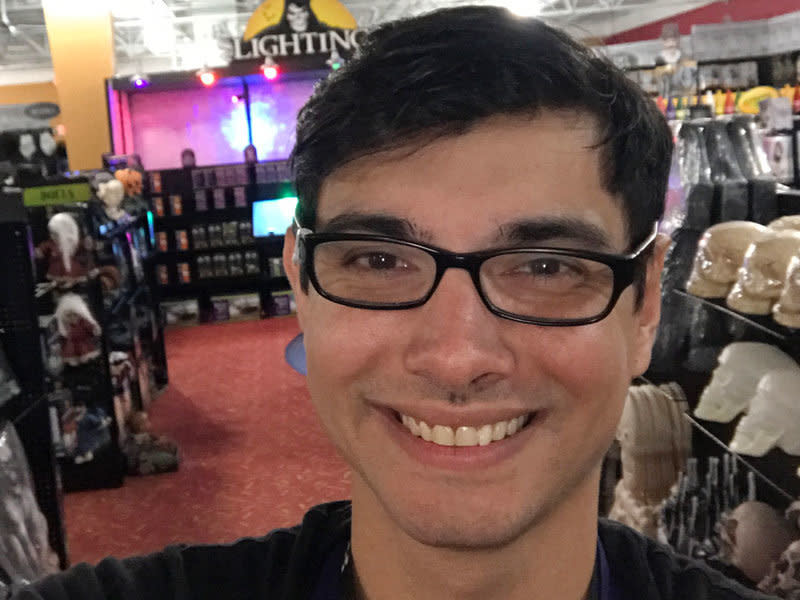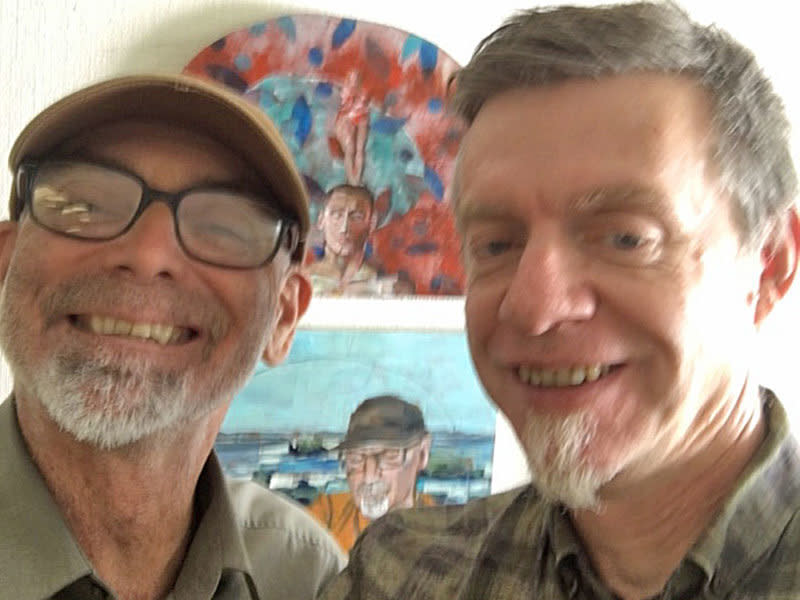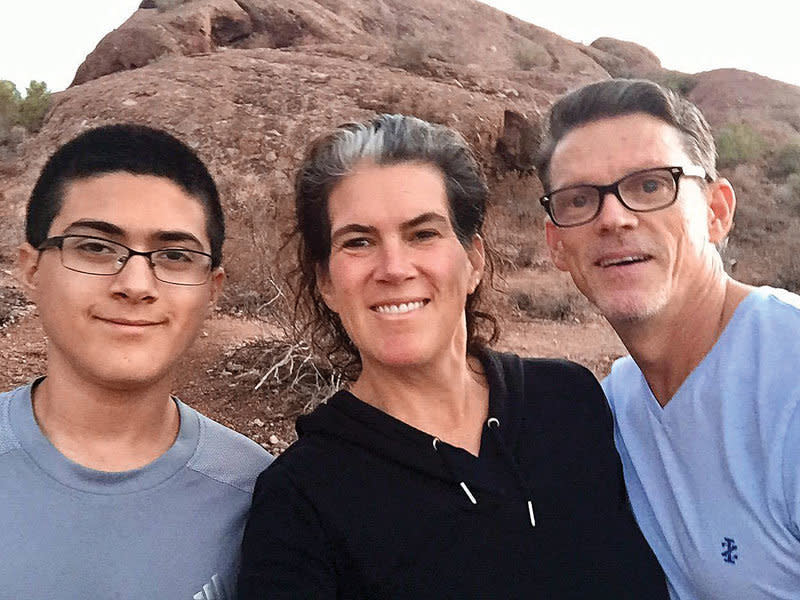Thousands Of Americans Still Die Of AIDS Every Year

Antiretroviral therapy has transformed HIV from a death sentence to a manageable chronic condition for many. Yet as the death of 41-year-old Broadway composer Michael Friedman this past Saturday reminds us, thousands of Americans still die every year from HIV/AIDS.
In 2014, the last year for which these data are available, 12,333 Americans with HIV died of any cause, and 6,721 of them died from causes directly attributable to HIV.
“AIDS has certainly not gone away,” said Dr. Jeffrey Klausner, a professor of medicine and public health at the UCLA David Geffen School of Medicine. “At an average of 20 deaths a day, it’s something that’s occurring regularly.”
An estimated 1.1 million people in the U.S. are living with the disease, although about 15 percent of them don’t know they have it. But HIV/AIDS doesn’t draw the media attention it once did.
“We need to continue to be aware, continue to talk about it and continue to advocate for prevention and treatment resources,” Klausner said.
To Prevent And To Heal
The message from public health officials is clear: If you test positive for HIV, get into treatment right away. Taking antiretroviral medicines every day can bring HIV levels in a person’s body so low as to be almost undetectable, which drastically reduces the chances of passing the virus to someone else.
At the same time, lower HIV levels drastically reduce the chances that you’ll die of HIV/AIDS complications. Untreated HIV weakens the immune system, leaving a person more susceptible to other infections and cancer. The virus also keeps the body in a state of chronic inflammation, which increases the risk of heart disease, stroke and dementia.
Getting into treatment as soon as possible is key to preventing HIV from wreaking havoc on the body. Federal funds are available for those who can’t afford medication. But still not everyone gets tested soon enough, obtains the medication and/or manages to take it daily.
The more pills skipped, the more patients run the risk that their virus levels will spike. In rare cases, they may even become resistant to the antiretroviral medication.
“Treatment is great for those who can access it early and take it every day, there’s no question about it,” said Dr. Steven Deeks, professor of medicine at the University of California, San Francisco. “But a lot of people just cannot get the drugs, or when they do, they can’t take them for a variety of reasons.”
Reasons for not taking medication or missing checkups range from the mundane (too busy, difficulty in scheduling appointments) to the alarming (homelessness, lack of transportation, depression and shame). Many people who need care also struggle with mental illness and substance abuse.
“So in countries like Switzerland, where there’s a lot less poverty and they have a health care system that delivers these drugs universally, they’re doing better than the U.S., where we have a tremendous amount of social and economic issues that get in the way,” said Deeks.
The People Most At Risk
AIDS-related deaths are down around the world ― from about 1.9 million in 2005 to about 1 million in 2016. While the numbers are also dropping in the U.S., the country’s staggering socioeconomic inequality and lack of universal health care means that it still outpaces other wealthy developed nations in new HIV infections and falls behind them in widespread testing and treatment.
In the U.S., 39,513 people were diagnosed with HIV in 2015, the last year for which that number is available. The same year, only 29,747 people were diagnosed with HIV in the 31 countries that make up the European Economic Area and whose combined populations are about 200 million more than the U.S. population.
Klausner pointed to “this great imbalance of the haves and have-nots” in explaining why the American rates of HIV infection and AIDS deaths are still so bad.
In 2015, about half of all new HIV diagnoses in the U.S. were among people living in the South, which is home to some of America’s poorest citizens and offers the least access to affordable health care. In addition to having the highest rates of new HIV diagnoses and HIV-related deaths, the South is burdened with high rates of diabetes and cancer, the Centers for Disease Control and Prevention notes.
New HIV diagnoses in 2015 were also concentrated among gay and bisexual men of all races and among black straight women.
“We still have major gaps in our ability to address certain populations, particularly in southeastern parts of the U.S., and particularly among African Americans,” Klausner said.

How To Stop More Diagnoses And Deaths
One way to stem the tide of new HIV infections in the U.S. would be to present people who get tested with two pathways, Klausner said. If they test positive, they should receive treatment right away. If they test negative, doctors should still talk with them about a plan to forestall future HIV infection ― potentially including taking a medication like PrEP that substantially lowers the risks of contracting the disease.
While this approach is standard at publicly funded clinics, Klausner said, private-sector health care ― which serves most Americans ― has been slow to adopt such prophylactic medicine.
“While we say HIV is manageable and AIDS is preventable, it’s much better to prevent someone from getting HIV in the first place,” he said.
Doctors, nurses and other clinic staff should also recognize how much their actions affect patients’ will and ability to follow a treatment plan. A 2015 qualitative study conducted by researchers at the University of Pennsylvania found that simple things like positive relationships with clinic staff, patient-friendly services such as arranging transportation, and even calls to remind people of an appointment were a big factor in helping patients stay on their regimen.
Also on HuffPost
5:42 AM: Denver, Colorado

8:00 AM: Khayelitsha, South Africa

10:00 AM: Duluth, Minnesota

12:00 PM: San Francisco, California

12:05 PM: Sofia, Bulgaria

1:15 PM: Houston, Texas

2:00 PM: San Diego, California

2:35 PM: Hayward, California

4:00 PM: Los Angeles, California

4:16 PM: New York, New York

5:29 PM: Boston, Massachusetts

5:35 PM: Scottsdale, Arizona

Love HuffPost? Become a founding member of HuffPost Plus today.
This article originally appeared on HuffPost.

